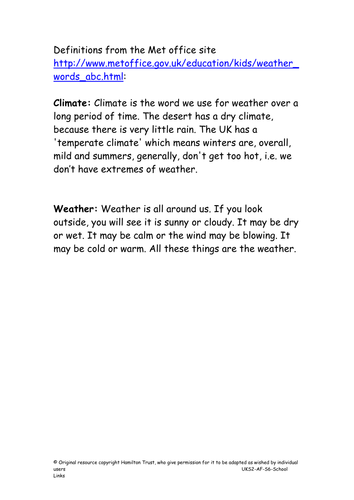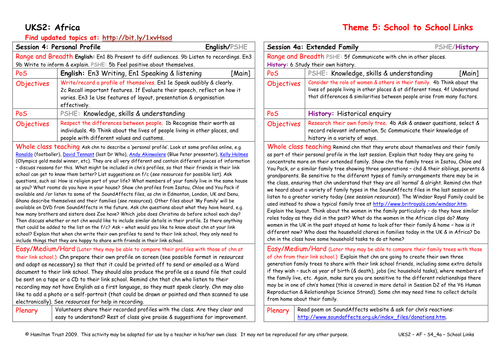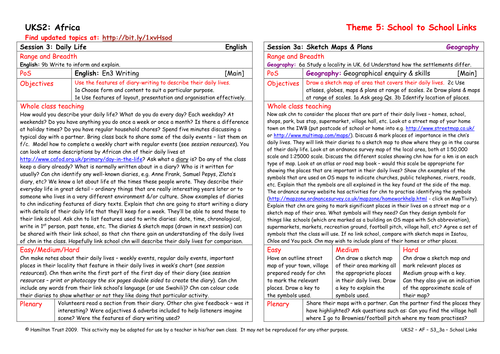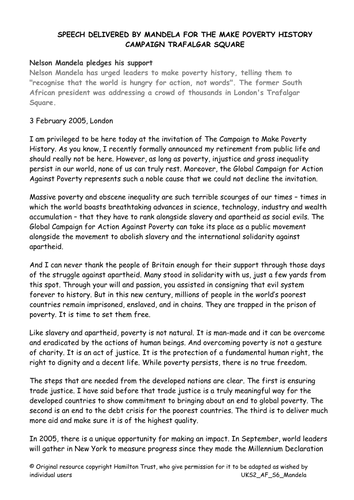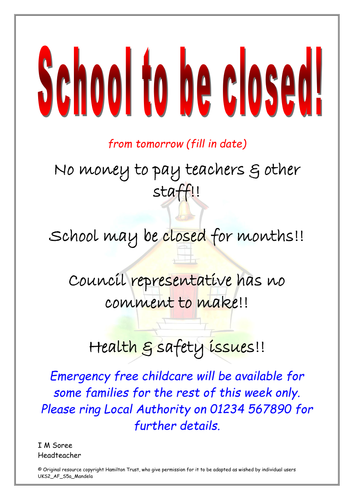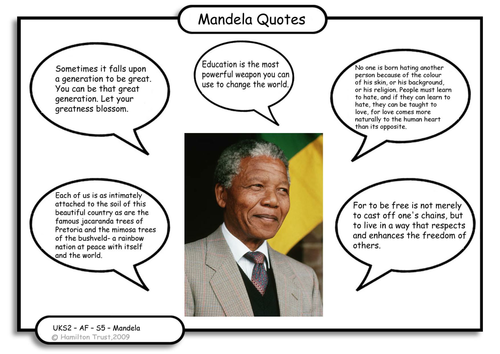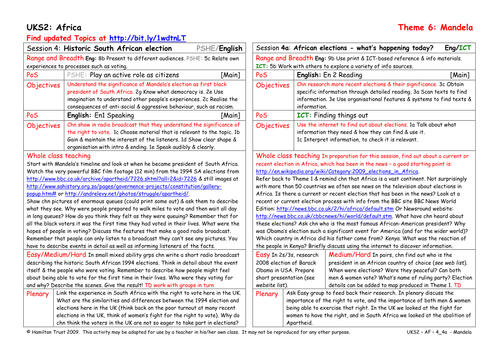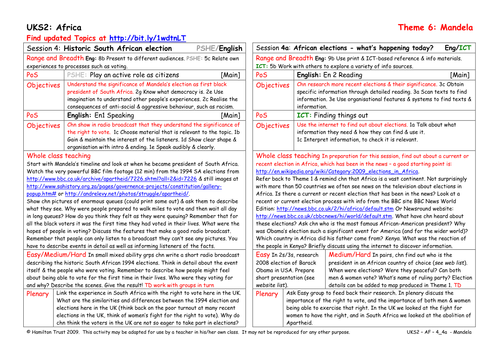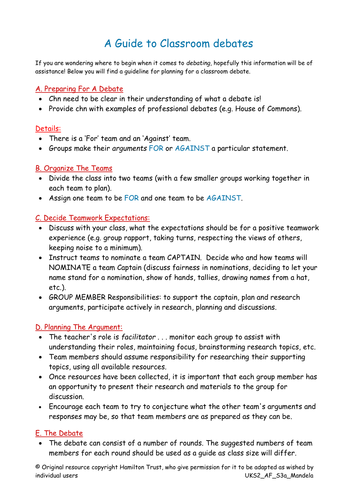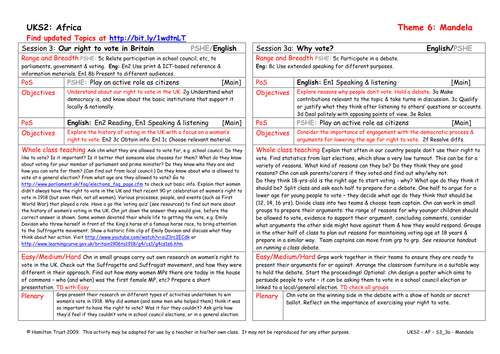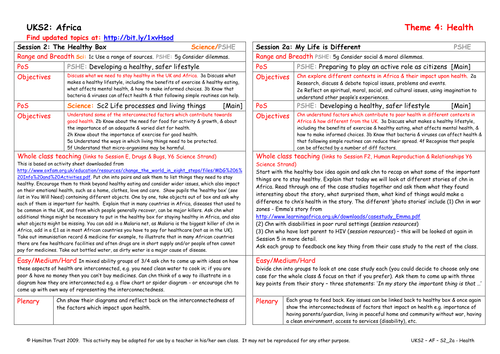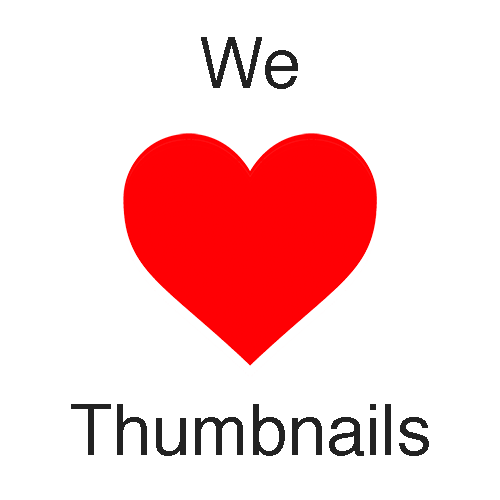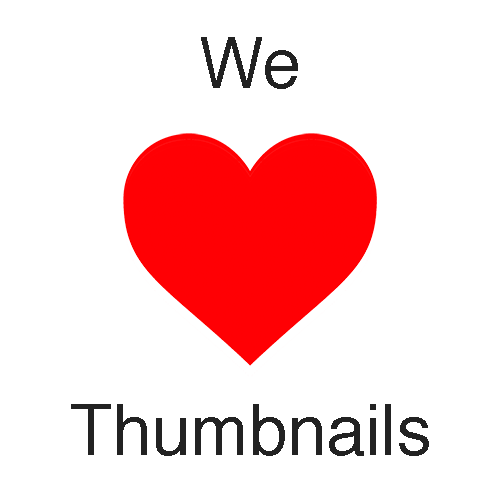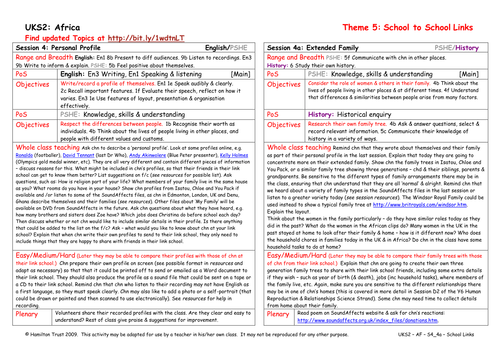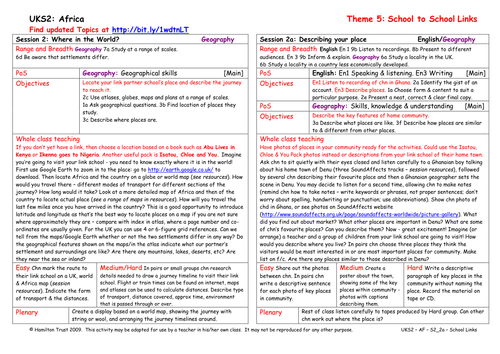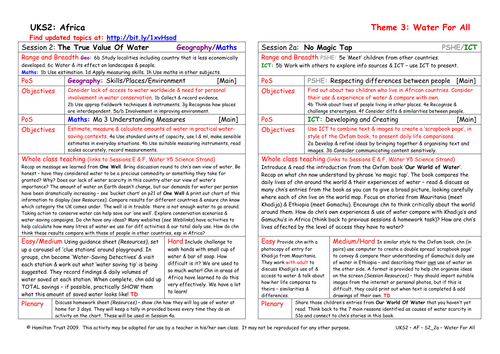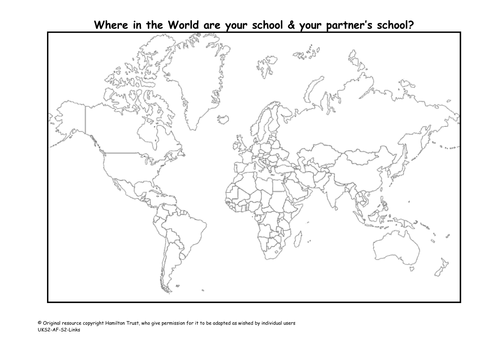
397Uploads
10041k+Views
11644k+Downloads
All resources

Apartheid
Examine the system of apartheid through a class role play activity. Introduce Nelson Mandela and discover what children already know about him. Children reflect on their own feelings during the role play. Start reading Journey to Jo’burg. Suitable for years 5 and 6.

Climate
Investigate the climate of the UK and different parts of Africa. Consider how the weather affects our daily lives – clothes, homes, transport, food, etc. Keep a weather chart to swap with your link school or research climate change in UK and Africa.
Suitable for years 5 and 6.

Family Food
Consider where the food that we eat comes from. Grown at home, locally or in another country? Discuss food miles. Who does the shopping, cooking, washing up? Where does the water come from? Cook a meal/dish and write the recipe to send to your link school. Suitable for years 5 and 6.

Personal Profile
Use celebrity profiles to decide what children might include in their personal profile to introduce themselves to their link school friends. Listen to Ghanaian children describing themselves and their families. Prepare own profiles on screen or as recordings.

Sketch Maps and Plans
Sketch maps of the local area and plans of homes and other places will help their link school friends understand the children’s daily lives as described in their diaries. Look at OS maps and street plans. Children use symbols and a key to clarify their maps and plans.
Suitable for years 5 and 6.

Mandela and Poverty
Children study a Mandela speech on poverty and analyse why it’s so importance in terms of content, context and process. Children plan and write their own speech on the right to education.
Suitable for years 5 and 6.

The Right to Education
Through role play children consider for themselves the impact of no access to school.
They plan a poster campaign or write a persuasive letter to reopen their school. Links to Children’s Rights to Education.
Suitable for years 5 and 6.

Mandela and Education
This session examines through real stories the varied reasons why 40 million children in Africa don’t attend school. Children play a ranking game to explore obstacles to education.
Suitable for years 5 and 6.

African Elections
Africa is a large continent with over 50 countries – usually there is an election going on somewhere! Children research a current/recent election in Africa and/or the election of Barack Obama as President of USA. Discuss the significance of Obama’s election.
Suitable for years 5 and 6.

Historic South African election
Black Africans were very eager to vote in the 1994 South African election. Discuss the significance of Mandela’s election as the first black president in South Africa. Use historic film footage to show queues of voters and reactions to the election.
Suitable for years 5 and 6.

Why Vote?
Discuss facts about voting in the UK: not everyone exercises their right to vote. Engage children on the right to vote and its significance in their own country. In two teams for and against, debate the issue of lowering the voting age.
Suitable for years 5 and 6.

Our right to vote in Britain
Examine voting in the UK, recent elections, and why we vote. Children use a quiz to explore the history of voting in the UK and focus on women’s right to vote, and then do further research. Watch film footage of Emily Davison.
Suitable for years 5 and 6.

The Healthy Box
Explore with Children the basis needs to ensure good health, and how they are interconnected using the concept of a ‘healthy box’.
Suitable for years 5 and 6.

School's Out!
What do children do when they are not in the classroom? At playtimes, evenings and weekends? Discuss sport, games and hobbies. Write instructions for a playtime game or making a craft object to send to their link school friends. Try an African game or craft.
Suitable for years 5 and 6.

School Structure
Compare your school with your link school (or use a Ghanaian school). The UNICEF book 'A school like mine' is used as a starting point to look at similarities and differences. Children prepare a website describing their school or the UK education system.
Suitable for years 5 and 6.

Extended Family
Now children are going to expand the information about themselves to include their family. They draw family trees. Discuss the role of women – do children’s mothers have the same role as their grandmothers or earlier generations? What about the African women?
Suitable for years 5 and 6.

Daily Life
Children describe their daily lives. They think about the things they do regularly each day, each week and at weekends. Look at the features of diaries and then children keep a diary for a week to share with their link school friends. Compare with lives of other children.
Suitable for years 5 and 6.

Describing Your Place
Listen carefully to some children in Ghana describing their home town or use descriptions from your link school friends of their town. Imagine the teacher and some children from your link school are going to visit your town! Describe the places they should visit.
Suitable for years 5 and 6.

The True Value of Water
The global well is in trouble – not enough water to go around. Take action to conserve water! Children use ‘clue stations’ to discover water-saving tips, working out how much water they would save. They are set homework to log water use at home over 3 days.
Suitable for years 5 and 6.

Where in the World?
Discover where in Africa your link school is (or use a child described in a book as your link). Imagine you are going to visit and plan the journey you would make. Draw the route on maps or create a journey timeline including distances, mode of travel, etc.
Suitable for years 5 and 6.


